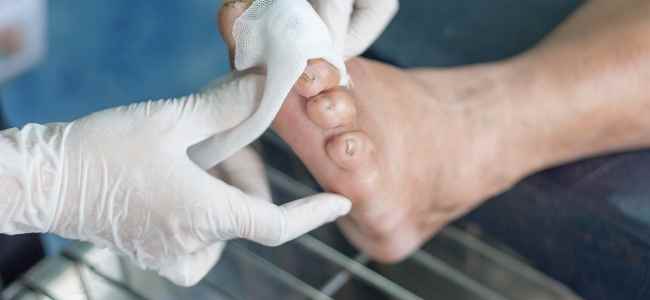Research by the American Diabetes Association estimates that an additional 1.5 million Americans annually discover they live with diabetes. The team working at the Heart Vascular and Leg Center, Bakersfield, treats diabetes-related foot conditions. They understand that diabetes naturally heightens the patient’s risk of contracting foot illnesses like infections, feeling loss, and constricted blood vessels. Led by an experienced board-certified cardiologist, the Bakersfield diabetic foot care specialist team offers thorough and customized consultations. Contact the office to understand more about cardiologist Vinod Kumar, MD, FACC, and the Heart Vascular and Leg Center specialist team.
How are a diabetic’s feet affected by diabetes?
We understand that even some diabetics do not realize the effect their condition might have on their feet. First off, diabetes is a disorder experienced in the patient’s blood glucose levels. It then affects the patient’s body’s ability to utilize sugar or glucose, an essential energy source in the food. Several complications led on by diabetes in patients commonly include:
- Infections
- Small wounds and blisters
- Weak immune system
- Loss of feeling in their feet
- Slower healing and a reduced blood flow
- Narrowed and sometimes hardened blood vessels
- Impaired oil and sweat production
Without proper medical assistance, diabetes might cause more severe cases, including amputation and gangrene, both life-threatening circumstances.
How can one prevent getting diabetes-related foot complications?
Preventing several foot conditions contributed to by diabetes requires working with specialists in treating diabetic-related foot issues. These physicians work to treat the problem while enhancing your foot healthcare. Led by specialist Vinod Kumar, our physicians recommend taking on healthier lifestyle traits such as regular exercise and nutrient-rich diets.
They also advise patients and other people living with diabetes to conduct daily foot inspections and home care. Inspecting them could include daily soothing by moisturizer and checking for changes such as ingrown toenails, bruises, puncture wounds, corns, calluses, dry skin, and redness.
Also, check for other conditions like fungal infection, plantar warts, athlete’s foot, hammertoes, bunions, or bumpiness on your foot sole. Trim and file your toenails frequently, ensuring to cut straight across. Avoid soaking for too long or walking barefoot to prevent the skin from drying out.
Wear fitting and comfortable footwear with ranges from walking and athletic shoes being an ideal choice. Avoid wearing shoes made of plastic or vinyl or those with pointed toes and high heels. Wear padded socks, ensuring they are dry and clean.
How will a diabetic benefit from expert foot care?
We offer diagnostic opportunities like X-ray imaging and conduct exams on our patients. Professional diabetic foot care will provide numerous benefits, with your specialist recommending antibiotics appropriate for treating cases like infections. The physician could also recommend other treatment options that may offer you effective results, such as custom orthotics, diabetics’ socks, nail trimming, and specially designed diabetic shoes. Our experts also provide other options, including glucose monitoring, special braces and casts, compression stockings, and anti-inflammatory medications.
Conclusion
In a necessary circumstance, a specialist will recommend removing infected, damaged, and dead tissue. Contact Heart Vascular and Leg Center either via phone or online to acquire top-quality preventative foot medical care. It will prevent your feet from developing any serious complications that could become life-threatening.


